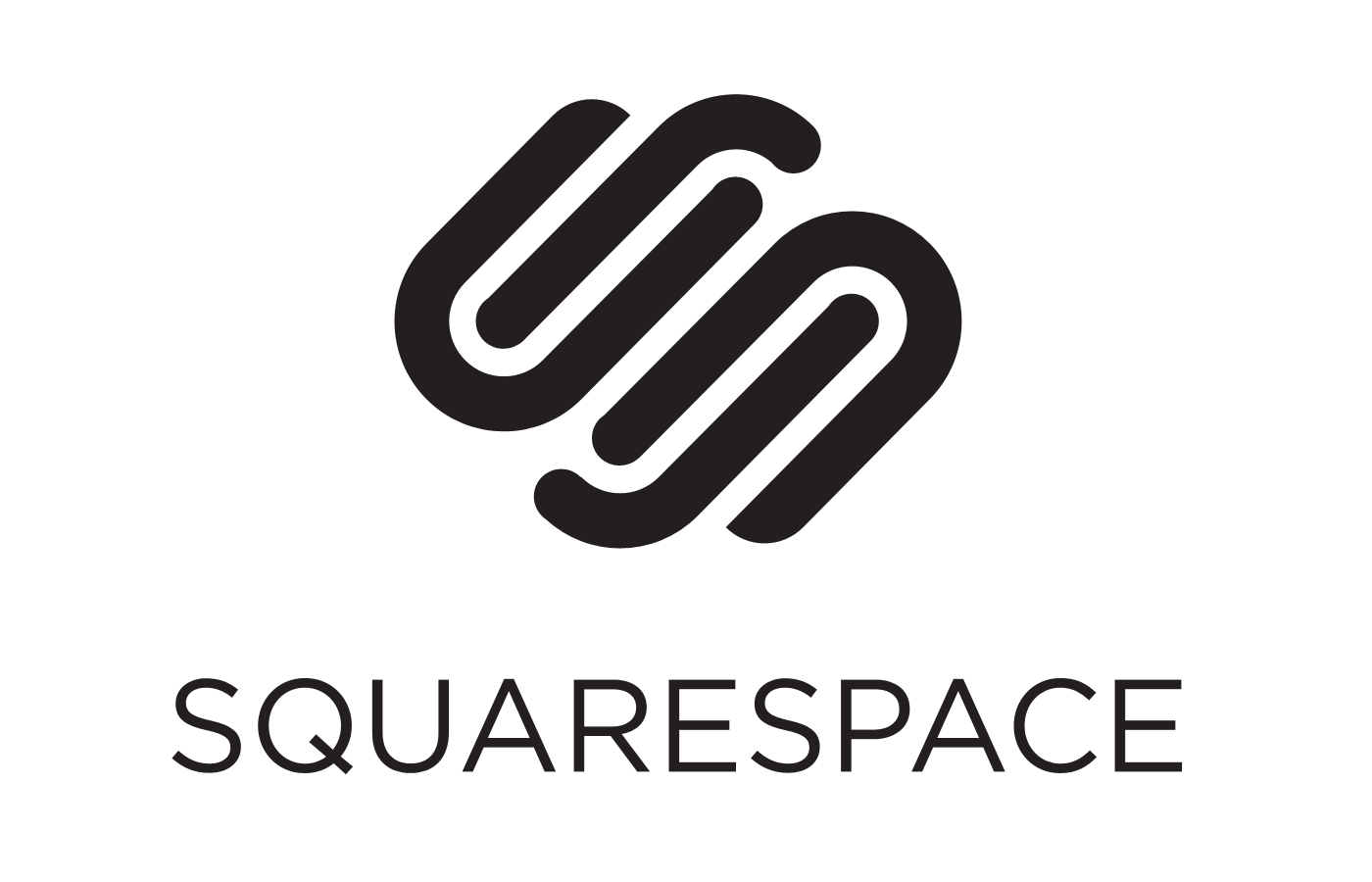Authors seeking to promote their work face the challenge of building and managing websites without technical expertise. Fortunately, specialized website builders cater to their needs, offering user-friendly interfaces and pre-designed templates.
These platforms empower writers to showcase their content, engage with readers, and effortlessly establish a strong online presence.
In this article, we’ll explore the best website builders for authors, highlighting key features and benefits to helping you confidently navigate the digital realm and share your literary creations globally.
QuickLook: Best Website Builders for Authors
8 Best Website Builders for Authors
With countless website builders available today, authors have numerous options to create their ideal online platform. Below, we’ll delve into the top eight website builders for authors.
WordPress
43% of the web is built on WordPress. More bloggers, small businesses, and Fortune 500 companies use WordPress than all other options combined. Join the millions of people that call WordPress.com home.
Overview of features
WordPress is a leading CMS platform and empowers authors with plugins and themes for professional websites. With a user-friendly interface and community support, it suits authors of all technical levels.
Its plugins offer versatile features like contact forms, social media integration, and book review sections. Blogging capabilities enable authors to engage readers through regular updates and articles.
Pricing plans and packages
WordPress itself is free to use, but users need to purchase web hosting and domain separately. Many hosting providers offer managed WordPress plans with varying pricing levels, making them accessible to authors with different budgets.
Pros:
- Enormous flexibility and scalability to suit any author’s needs.
- A vast library of themes and plugins for customization.
- Regular updates and improvements for enhanced security and functionality.
Cons:
- Beginners may find it overwhelming without some technical knowledge.
- Maintaining the website may require regular updates and backups.
Squarespace
Create a customizable website or online store with an all-in-one solution from Squarespace. Choose a website template and start your free trial today.
Overview of features
Squarespace is known for its user-friendly interface and beautiful templates, making it an excellent choice for authors looking to showcase their books in an aesthetically pleasing manner. The platform offers a variety of professionally designed templates, enabling the creation of visually appealing websites without any coding skills.
Squarespace’s built-in blogging platform also allows authors to share updates and stories and engage with their audience. Additionally, the platform’s seamless integration with social media and email marketing services makes it easy for authors to reach a broader audience.
Pricing plans and packages
Squarespace offers various pricing plans, starting from a Personal plan at $16 per month, which includes basic website features and a Squarespace domain. Higher-tier plans, such as Business and E-Commerce, cater to authors who want to sell books and merchandise directly from their websites.
Pros:
- High-quality templates with a focus on aesthetics.
- Mobile-responsive designs for optimal user experience on all devices.
- 24/7 customer support.
Cons:
- Limited third-party integrations compared to some other website builders.
- Lower-tier plans have transaction fees on sales.
Wix
Create a website without limits. Build and scale with confidence. From a powerful website builder to advanced business solutions—we’ve got you covered.
Try Wix. No credit card required.
Overview of features
Wix provides a drag-and-drop website builder that allows authors to create visually appealing sites without the need for coding skills. With its user-friendly interface and vast template library, authors can easily customize their websites to suit their unique branding and style.
Wix offers a dedicated blogging platform, enabling authors to share updates and articles and connect with readers through comments and social media integrations. Moreover, Wix’s SEO features help authors improve their website’s visibility on search engines and attract readers.
Pricing plans and packages: Wix offers a free plan with basic features and Wix branding. For advanced features and a custom domain, premium plans start at $16 per month. Additionally, authors with business and e-commerce needs can explore higher-tier plans that provide additional functionalities.
Pros:
- Intuitive and beginner-friendly interface.
- Extensive app market for adding extra functionality to the website.
- Excellent customer support through live chat and email.
Cons:
- Limited storage space on lower-tier plans.
- Once you choose a template, you cannot switch to another without starting over.
Joomla
The Flexible Platform Empowering Website Creators
Joomla! is an award-winning content management system (CMS), which enables you to build web sites and powerful online application
Overview of features
Joomla is a versatile CMS that caters to authors with advanced website needs. Despite a steeper learning curve, it offers greater flexibility and control. Authors can choose from various templates and customize them to their style.
Joomla’s powerful extensions, like discussion forums, enhance website functionality, making it an ideal choice for authors seeking more customization options.
Pricing plans and packages
Joomla itself is free to use, but users need to purchase web hosting and domain separately. Various hosting providers offer Joomla-specific plans with different pricing tiers, making it accessible to authors with various budgets.
Pros:
- Highly flexible and customizable platform.
- Regular updates and improvements through a dedicated community.
- Suitable for authors with some technical knowledge and a desire for control.
Cons:
- Learning curve for beginners without web development experience.
- May require additional plugins or extensions for specific features.
Drupal
Drupal is the open-source platform of choice for media and publishing.
Create engaging multi-channel experiences to connect with your audiences - everywhere.
Overview of features
Drupal is a powerful CMS that suits authors needing sophisticated functionality. Though less beginner-friendly, it offers highly customizable and scalable websites. Authors benefit from a vast range of modules and themes to design tailored platforms, integrating online bookstores, interactive communities, and multimedia content to meet specific needs effectively.
Pricing plans and packages
Drupal itself is free to use, but users need to purchase web hosting and domain separately. Drupal’s flexibility means that authors can opt for various hosting plans based on their website’s requirements and budget.
Pros:
- Scalable and robust platform for handling complex websites.
- Extensive options for customization and control.
- Regular updates and improvements for enhanced performance.
Cons:
- Requires some technical knowledge for advanced customizations.
- May have a steeper learning curve for beginners.
Ghost
Ghost is a powerful app for new-media creators to publish, share, and grow a business around their content.
Try Ghost completely free for 14 days
Overview of features
Ghost is a CMS specifically designed for bloggers and writers looking to share their writing and promote their books. Ghost’s minimalist and distraction-free writing interface provides an excellent environment for authors to focus on their content creation.
The platform’s built-in SEO features help authors optimize their articles for search engines and attract a larger readership. Ghost also offers membership and subscription features, allowing authors to offer exclusive content to their loyal readers.
Pricing plans and packages
Ghost offers a Creator plan starting at $29 per month, which includes hosting, unlimited themes, and custom integrations. Higher-tier plans offer additional features, such as custom domains and priority support.
Pros:
- User-friendly platform tailored for writers and bloggers.
- Built-in features for content creation and distribution.
- Membership and subscription options for monetization.
Cons:
- Higher pricing compared to some other website builders.
- May lack some advanced features required for non-writing websites.
Weebly
Get access to customizable webpage designs and useful tools to build your website and grow your ideal business. Easily build a free website to help you get discovered and grow your customer base in style.
Start today with our powerful free website builder.
Overview of features
Weebly is a user-friendly drag-and-drop website builder with straightforward customization options. Its intuitive interface makes it suitable for authors with minimal technical skills.
Weebly offers attractive templates optimized for mobile devices, ensuring that authors’ websites perform well on various screen sizes. With its integrated blogging platform, authors can easily publish articles, updates, and engage with their readers. Additionally, Weebly’s e-commerce features enable authors to set up online stores and sell books and merchandise directly from their websites.
Pricing plans and packages
Weebly provides a free plan with basic features and Weebly branding. For advanced options and the ability to use a custom domain, paid plans start at $10 per month. Authors looking to set up an online store can explore e-commerce plans.
Pros:
- Simple and intuitive interface, ideal for beginners.
- 24/7 customer support through live chat, phone, and email.
- Suitable for authors with minimal technical skills.
Cons:
- Limited design flexibility compared to some other platforms.
- Transaction fees apply to lower-tier plans on e-commerce sales.
Webflow
Build with the power of code — without writing any
Take control of HTML, CSS, and JavaScript in a visual canvas. Webflow generates clean, semantic code that’s ready to publish or hand to developers.
Overview of features
Webflow is a powerful website builder that enables authors to create custom, responsive websites without coding. Its visual drag-and-drop interface offers a user-friendly design, while advanced customizations can be made by diving into the code.
Authors can choose from pre-designed templates and personalize them. Webflow’s CMS capabilities streamline content management, making it an efficient platform for authors to build and update their websites effectively.
Pricing plans and packages
Webflow offers various pricing plans, including a free plan with limited features and a Webflow subdomain. Paid plans start at $14 per month, with additional features and options for a custom domain. Advanced plans cater to authors with more significant website needs.
Pros:
- High degree of design and customization freedom.
- CMS capabilities for easy content management.
- Suitable for authors with or without coding knowledge.
Cons:
- Learning curve for advanced customizations.
- May require more time and effort to set up compared to simpler website builders.
Keep in mind that it will take some additional research to find the perfect solution for your advertising needs and that any software will inevitably present some challenges. However, publishing content in the modern age has never been easier. So take the learning curve as a guide to improve your chances of broadcasting your content.
Important Considerations When Deciding on the Best Website Builder for Authors
Before choosing a website builder for your author website, several key factors should be taken into account. Each of these considerations plays a vital role in determining which platform aligns best with your specific needs and goals. Here are the important aspects to keep in mind:
- Ease of use: Look for a platform with an intuitive and user-friendly interface. A drag-and-drop website builder can make the design process more accessible for authors without technical expertise.
- Templates and design options: Ensure the platform offers a diverse range of professionally designed templates suitable for authors. Aesthetic and customizable designs can help your website stand out and represent your author brand effectively.
- Customization options: Consider the level of customization available. The ability to personalize layouts, fonts, colors, and other elements ensures your website reflects your unique style and personality.
- Mobile responsiveness: With a growing number of users accessing websites on mobile devices, it’s crucial that your author website is mobile-friendly and automatically adjusts to various screen sizes.
- Search Engine Optimization (SEO) tools: Optimize your website’s visibility on search engines with built-in SEO features. SEO-friendly platforms help improve your website’s ranking and attract potential readers.
- Security and privacy (includes SSL certificate): Ensure the website builder offers SSL certificates and robust security features to protect your data and readers’ information. A secure website fosters trust among your audience.
- Pricing: Compare the pricing plans and packages offered by different builders. Consider the features included in each plan and whether they align with your budget and website requirements.
- Blogging capabilities: If you plan to regularly update your audience with articles, stories, or book updates, look for a platform with integrated blogging capabilities. An easy-to-use blogging platform streamlines your content creation process.
- E-Commerce integration: For authors looking to sell books or merchandise directly from their website, choose a builder that supports seamless e-commerce integration. Features such as product listings, payment gateways, and inventory management are essential.
- Customer support: Check the availability and quality of customer support. Responsive and helpful support can save you time and resolve any issues that may arise during website development.
- Scalability: Consider the potential growth of your author website. A scalable platform will allow you to expand your website as your audience and authorship evolve.
- Reviews and recommendations: Research user reviews and recommendations from other authors who have used the platform. First-hand experiences can provide valuable insights into the strengths and limitations of each website builder.
How to Build Your Author Website?
Once you’ve established a liking for a website that works best for your needs, it’s time to build your author website. To create an effective platform that represents your brand and showcases your literary endeavors, follow these steps:
- Buy a domain name: Choose a unique and memorable domain name that reflects your author brand. Your domain name is your website’s address (e.g., www.yourauthorname.com), and it plays a significant role in establishing your online presence. You can use popular platforms like GoDaddy to purchase your domain.
- Choose a website builder: Select a website builder that aligns with your needs and technical expertise. Consider factors like ease of use, available templates, customization options, and integration capabilities.
- Design your website: Customize your website’s appearance to reflect your unique style. Choose a visually appealing template, select complementary colors, and personalize fonts and layouts. Ensure your website’s design resonates with your target audience and reinforces your author brand.
- Create your pages (about me, blogs, contact info, etc): Craft essential pages to provide valuable information to your readers. Create an “About Me” page to introduce yourself and your writing journey. Include a blog section to share updates and articles and interact with your audience. Additionally, add a “Contact” page to facilitate communication with readers, agents, or publishers.
- Launch and promote your website: After finalizing your website’s content and design, launch it to the public. Promote your website on social media, writing communities, and through email newsletters. Engage with your audience and encourage them to visit and share your website with others.
If building your website on your own seems like a daunting task that may not be worth your time. It may be a viable choice to hire a web developer to help you navigate the intricacies of your chosen CMS platform.
Authors in the Digital Spotlight
In the digital age, websites are crucial for authors to effectively promote their content and connect with readers. Although it may be a steep learning curve for those who aren’t technically adept at building a website from scratch, it’s undoubtedly worth the investment.
By overcoming technical barriers, authors can create professional websites to showcase their works and engage with a wider audience. Embrace the power of websites to unlock your authorship’s full potential and thrive in the dynamic world of writing.
FAQs
How much does it cost to use a website builder for authors?
The cost of using a website builder for authors varies depending on the platform and the features you need. Some website builders offer free plans with basic features, while premium plans with advanced functionalities may range from $10 to $40 per month.
Do website builders for authors provide options for collecting email addresses for newsletters?
Yes, many website builders offer built-in tools or integrations with email marketing services to collect email addresses from visitors interested in subscribing to author newsletters.
Do these website builders provide analytics to track website performance?
Yes, most website builders offer analytics tools that allow authors to track various metrics, such as website traffic, visitor behavior, and popular content, enabling data-driven insights for website improvement.
Are there any website builders that offer live chat support for visitors?
Yes, some website builders provide live chat support features that allow authors to engage with visitors in real-time, addressing inquiries and enhancing user experience.
Do website builders for authors support multiple languages for international audiences?
Yes, many website builders offer multilingual capabilities, enabling authors to create content in multiple languages and cater to a diverse global audience.














